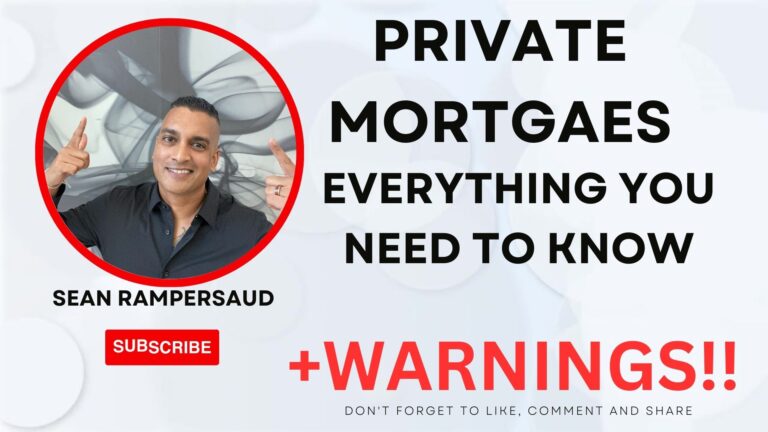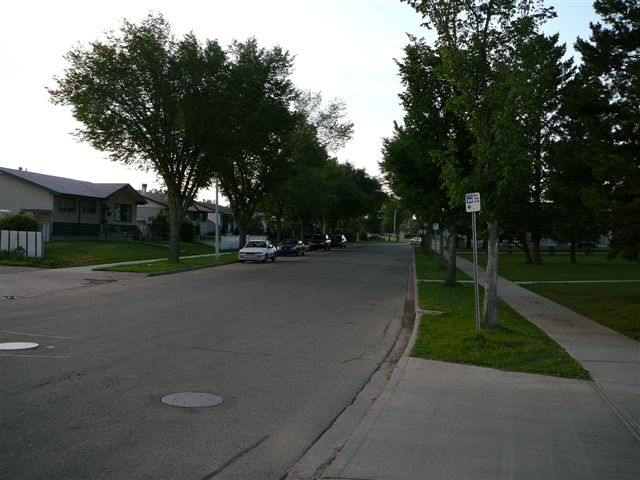
What is Private Lending?
Private lending in Edmonton, Alberta is a popular alternative to traditional bank loans for borrowers who have difficulty obtaining financing from conventional sources. Private lenders in Edmonton are often individuals or small companies who lend money to borrowers in exchange for a higher interest rate than they could obtain from a bank or credit union. This blog will explore the pros and cons of private lending in Edmonton, Alberta.
Pros of Private Lending in Edmonton
Accessibility
Private lending in Edmonton is often more accessible than traditional bank loans because private lenders are willing to take on higher risk borrowers. This means that individuals who may have been turned down for a bank loan due to a poor credit score or lack of collateral may be able to obtain financing from a private lender.
Flexibility
Private lenders in Edmonton are often more flexible than traditional banks in terms of loan terms and conditions. This can be particularly helpful for borrowers who need customized loan structures or who have unique financial circumstances.
Speed
Private lending in Edmonton is often faster than traditional bank loans because private lenders do not have the same strict underwriting guidelines as banks. This means that borrowers can often receive financing more quickly, which can be critical in situations where time is of the essence.
Real Estate Investment Opportunities
Edmonton’s real estate market is booming, and private lending can be a great way for investors to participate in this market. Private lenders can provide funding for real estate investments, including fix-and-flips and rental properties.
Cons of Private Lending in Edmonton
Higher Interest Rates
One of the biggest drawbacks of private lending in Edmonton is the higher interest rates that borrowers must pay. Private lenders take on higher risk borrowers and may charge interest rates that are significantly higher than those charged by traditional banks.
Shorter Loan Terms
Private lending in Edmonton typically involves shorter loan terms than traditional bank loans. This can be a disadvantage for borrowers who need longer repayment periods.
Lack of Regulation
Private lending in Edmonton is not subject to the same level of regulation as traditional banks. This can make it more difficult for borrowers to assess the reliability and trustworthiness of private lenders.
Potential for Scams
Because private lending in Edmonton is less regulated than traditional bank lending, there is a greater potential for scams and fraudulent activities. Borrowers should exercise caution when dealing with private lenders and carefully research potential lenders before agreeing to any loan terms.
Private lending in Edmonton, Alberta can be a good option for borrowers who are unable to obtain financing from traditional banks. Private lenders can provide accessibility, flexibility, speed, and real estate investment opportunities. However, there are also drawbacks to private lending, including higher interest rates, shorter loan terms, lack of regulation, and potential for scams. Borrowers considering private lending should carefully weigh the pros and cons and thoroughly research potential lenders before agreeing to any loan terms.
Common Questions About Private Lending
What is a Private Mortgage?
A private mortgage is a loan provided by an individual or company, rather than a traditional financial institution such as a bank or credit union. Private mortgages are typically used when borrowers cannot obtain financing from traditional lenders due to factors such as poor credit, insufficient income, or unconventional property types.
Who gets Private Mortgages?
Private mortgages are typically used by borrowers who are unable to obtain financing from traditional lenders. This can include self-employed individuals, those with poor credit, or those seeking to finance unconventional properties such as vacant land or commercial real estate.
Is there a Private Lender in Edmonton?
Yes, there are several private lenders in Edmonton who provide private mortgage financing to borrowers who cannot obtain financing from traditional lenders.
Is there a Private Lender for Calgary?
Yes, there are also private lenders in Calgary who provide private mortgage financing to borrowers who cannot obtain financing from traditional lenders.
Can I qualify for a private mortgage if I have bad credit?
Yes, private lenders are often willing to provide financing to borrowers with bad credit or other financial challenges that would prevent them from obtaining financing from traditional lenders. However, borrowers with bad credit may be subject to higher interest rates and fees.
What are the risks of dealing with a private lender?
Dealing with a private lender can be riskier than obtaining financing from a traditional lender. Private lenders may charge higher interest rates and fees, and may have more relaxed underwriting standards, which can lead to borrowers taking on loans that they cannot afford. In addition, some private lenders may engage in predatory lending practices or have questionable business practices.
Do Private Lenders Charge Fees?
Yes, private lenders typically charge fees in addition to interest rates. These fees may include origination fees, appraisal fees, and other fees related to the loan.
How Can I Get a Private Mortgage?
To obtain a private mortgage, borrowers typically need to find a private lender who is willing to provide financing. Borrowers can search online for private lenders, or work with a mortgage broker who can help them connect with private lenders.
Do I need a mortgage broker to get a private mortgage?
No, borrowers can also approach private lenders directly to obtain financing. However, working with a mortgage broker can help borrowers find the best private mortgage options and navigate the application process.
What interest rates do private lenders charge?
Interest rates charged by private lenders can vary widely depending on the borrower’s creditworthiness, the property type, and other factors. Private lenders typically charge higher interest rates than traditional lenders, with rates ranging from 7% to 15% or higher.
Are Private Mortgages Safe?
Private mortgages can be safe as long as borrowers work with reputable and trustworthy lenders. However, borrowers should be aware of the risks involved and carefully evaluate the terms and conditions of the loan before accepting financing.
What are the benefits of a private lender?
Private lenders can provide financing to borrowers who cannot obtain financing from traditional lenders. Private lenders often have more flexible underwriting standards and can provide financing for unconventional property types. In addition, private lenders can provide financing quickly, which can be beneficial for borrowers who need to close on a property quickly.
Information if you are in Foreclosure (there is a lot more on my site in the foreclosure section)
Foreclosure is a legal process in which a lender attempts to recover the balance of a loan from a borrower who has stopped making payments by selling the property that was used as collateral for the loan. In Edmonton, Alberta, foreclosure can be a challenging and stressful experience for homeowners. However, there are options available to help homeowners get out of foreclosure and avoid losing their homes. This blog will explore some of the ways homeowners in Edmonton can get out of foreclosure.
- Refinancing
Refinancing involves obtaining a new loan with better terms than the existing loan in order to pay off the existing loan. This can be a good option for homeowners who are struggling to make payments on their current mortgage. By refinancing, homeowners can lower their monthly payments, extend the repayment term, or switch to a more stable interest rate. In some cases, refinancing may even allow homeowners to pay off their existing loan in full and avoid foreclosure.
However, refinancing may not be an option for homeowners who have already fallen behind on their mortgage payments or who have a poor credit score. In addition, refinancing can be a lengthy and complex process that may require significant upfront costs and fees.
- Loan Modification
Loan modification is a process in which the terms of an existing mortgage are modified in order to make the payments more affordable for the homeowner. This can involve lowering the interest rate, extending the repayment term, or reducing the principal balance. Loan modification can be a good option for homeowners who are struggling to make payments but who do not want to sell their home or refinance their mortgage.
However, loan modification can be a complex and time-consuming process, and not all lenders are willing to modify the terms of an existing loan. In addition, loan modification may not be a viable option for homeowners who have already fallen behind on their mortgage payments or who have a poor credit score.
- Selling the Property
Selling the property is another option for homeowners who are facing foreclosure. By selling the property, homeowners can use the proceeds to pay off their existing mortgage and avoid foreclosure. Selling the property can be a good option for homeowners who are unable to make their mortgage payments and who do not want to go through the lengthy and stressful process of foreclosure.
However, selling the property may not be an option for homeowners who owe more on their mortgage than the property is worth or who are unable to find a buyer willing to pay the asking price. In addition, selling the property can be a time-consuming and stressful process, particularly for homeowners who are facing financial difficulties.
- Bankruptcy
Bankruptcy is a legal process in which an individual or business can discharge or reorganize their debts. For homeowners facing foreclosure, bankruptcy can be a way to temporarily stop the foreclosure process and obtain more time to get their finances in order. By filing for bankruptcy, homeowners can obtain an automatic stay, which temporarily halts any foreclosure proceedings.
However, bankruptcy should be considered a last resort, as it can have serious long-term consequences for a homeowner’s credit score and financial future. In addition, bankruptcy may not be a viable option for homeowners who have already fallen behind on their mortgage payments or who have significant assets that they wish to protect.
Foreclosure can be a stressful and challenging experience for homeowners in Edmonton, Alberta. However, there are options available to help homeowners get out of foreclosure and avoid losing their homes. Refinancing, loan modification, selling the property, and bankruptcy are all potential solutions that can help homeowners get back on track and avoid foreclosure. Homeowners facing foreclosure should carefully consider their options and seek out the advice of a qualified professional before taking any action.


